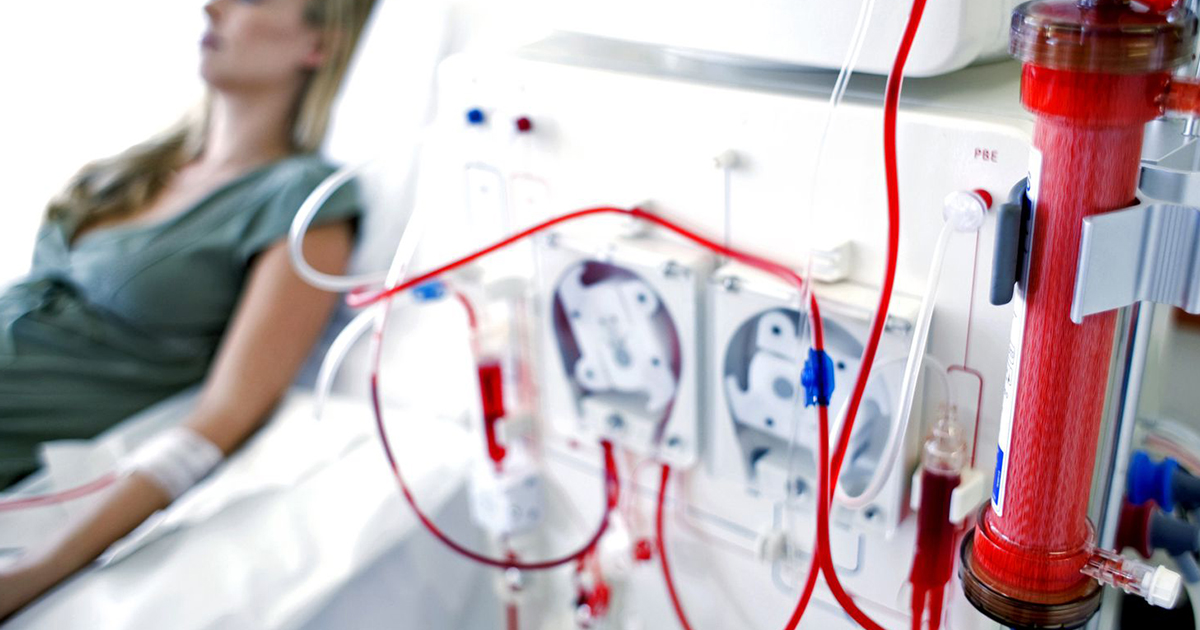Understanding Dialysis and Strategies to Delay its Onset for Preserving Kidney Function

Dialysis is a life-saving medical procedure for treating individuals with severely reduced kidney function. It involves the removal of waste products and excess fluid from the blood when the kidneys can no longer perform this function adequately. While dialysis can significantly improve the quality of life for those with kidney failure, it is crucial to explore methods to delay the need for dialysis and preserve kidney function. Today, we will delve into what dialysis entails, its impact on kidney function, and discuss strategies to delay its onset.
Understanding Dialysis and its Impact on Kidney Function
Dialysis plays a critical role in managing kidney failure by performing the tasks that the kidneys can no longer perform effectively. The kidneys are responsible for filtering waste products, excess fluids, and balancing electrolytes in the body. When the kidneys fail, these functions are compromised, leading to a buildup of toxins and fluid imbalances in the bloodstream.
Hemodialysis is a method that uses a dialysis machine to filter the blood externally. During hemodialysis, the patient's blood is carefully pumped through a dialyzer, which contains a semipermeable membrane. The membrane allows waste products and excess fluid to pass through while larger molecules and blood cells are retained. The cleaned blood is then returned to the patient's body. Hemodialysis is typically performed at a dialysis center, and each session lasts several hours.
On the other hand, peritoneal dialysis utilizes the body's peritoneal membrane as a natural filter. A sterile dialysis solution containing glucose is introduced into the patient's abdomen through a catheter. The peritoneal membrane acts as a semipermeable barrier, allowing waste products and excess fluids to pass from the blood vessels into the dialysis solution. After a dwell time, during which the solution remains in the abdomen, it is drained out, carrying the waste and toxins with it. Peritoneal dialysis can be performed at home, giving patients more flexibility and independence in managing their treatment.
It is important to note that it is not a kidney disease. Dialysis helps maintain the balance of essential substances in the bloodstream but does not restore full kidney function. Therefore, exploring strategies to delay the need for dialysis becomes crucial in preserving kidney function for as long as possible.
Strategies to Delay Dialysis and Preserve Kidney Function
- Managing Diabetes: Diabetes is a leading cause of kidney disease and can significantly impact kidney function. By effectively managing blood glucose levels and adhering to prescribed medications, individuals with diabetes can reduce the risk of kidney damage. Regular monitoring of kidney function through blood tests and maintaining a healthy lifestyle can help delay the progression to dialysis.
- Controlling Blood Pressure: High blood pressure is another significant contributor to kidney disease and the decline in kidney function. Individuals should closely follow their doctor's recommendations for blood pressure management, including taking prescribed medications and maintaining blood pressure within target ranges. By controlling hypertension, the risk of kidney damage can be minimized, potentially delaying the need for dialysis and preserving kidney function.
- Adopting a Healthy Lifestyle: Making positive lifestyle choices plays a pivotal role in delaying the onset of dialysis and preserving kidney function. Engaging in regular physical exercise promotes cardiovascular health and helps manage underlying conditions that can impact kidney function.
- Medication Management: Individuals with reduced kidney function must communicate openly with their healthcare provider about all medications they are taking, including over-the-counter drugs. Certain medications, such as non-prescription painkillers and contrast dyes used in medical testing, can potentially harm the kidneys. By ensuring that medical professionals are aware of their kidney condition, patients can receive appropriate prescriptions and avoid further kidney damage, thus preserving kidney function.
- Smoking Cessation: Smoking has detrimental effects on kidney health and can accelerate the progression of kidney disease. Quitting smoking is strongly advised for individuals with reduced kidney function. As it can help preserve kidney function and improve overall health. Support from healthcare providers, counseling services, and cessation programs can greatly assist individuals in achieving smoking cessation, thus contributing to the preservation of kidney function.
- Regular Medical Check-ups: Regular monitoring of kidney function through blood tests and urine analysis is essential for individuals at risk of kidney disease or those diagnosed with kidney disease. Routine check-ups allow healthcare professionals to detect any changes in kidney function and take appropriate measures to manage the condition effectively. By closely monitoring kidney health, potential issues can be identified early, and interventions can be implemented to slow the progression of kidney diseases, potentially delaying the need for dialysis and preserving kidney function.
Dialysis is a vital treatment option for individuals with kidney failure, providing a lifeline when the kidneys can no longer function adequately. However, implementing strategies to delay the onset of dialysis becomes crucial for individuals diagnosed with kidney disease to preserve kidney function. By effectively managing underlying, adopting a healthy lifestyle, managing medications, quitting smoking, and maintaining regular medical check-ups, individuals can potentially slow the progression of kidney disease and delay the need for dialysis. Preserving kidney function requires a comprehensive approach and close collaboration with healthcare professionals to tailor a personalized plan. Remember, each individual's kidney condition is unique, and open communication with healthcare providers is key to achieving the best possible outcomes in preserving kidney function and overall well-being.
- * All research and clinical data should be used as reference purposes only, results may vary.




